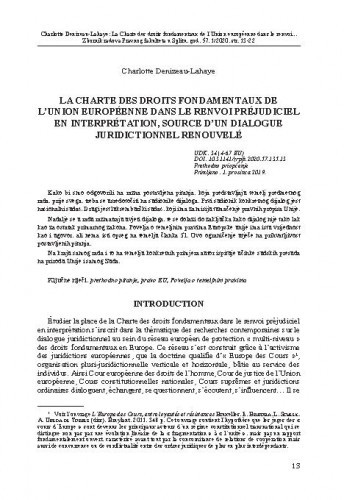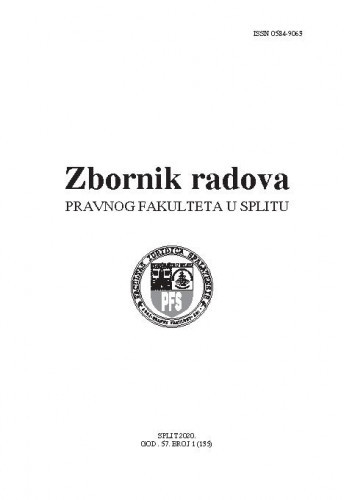Kako bi smo odgovorili na razna postavljena pitanja, koja predstavljaju temelj predmetnog rada, prije svega, treba se usredotočiti na sudionike dijaloga. Prvi sudionik konkretnog dijalog jest nacionalni sudac. Drugi jest luksemburški sudac, koji ima za misiju tumačenje pravnih propisa Unije.Nadalje se u radu razmatraju uvjeti dijaloga, te se dolazi do zaključka kako dijalog nije tako lak kao za ostatak primarnog zakona. Povelja o temeljnim pravima Europske unije ima istu vrijednost kao i ugovor, ali nema isti opseg na temelju članka 51. Ovo ograničenje utječe na prihvatljivost postavljenih pitanja.Na kraju samog rada i to na temelju konkretnih primjera autor ispituje učinke sudskih presuda na prirodu Unije i samog Suda.; In order to answer various questions which represent the foundation of this paper, above all, one must focus on dialogue participants. The first participant of the dialogue in question is the national judge. The other is the Luxembourg judge, who has as their mission the interpretation of the legal regulations of the Union.Further in this paper dialogue conditions are considered and the conclusion is reached that dialogue is not so easy as for the rest of primary law. The Charter on the Fundamental Rights of the European Union has the same value as the contract, but does not have the same scope on the basis of article 51. This limitation influences the acceptability of posed questions.Finally, based on concrete examples, the very effects of these questions and Court judgements are examined on the very nature of the Union and nature of the Court.
Sažetak

 Zbornik radova Pravnog fakulteta u Splitu : 57, 1(2020) / glavni i odgovorni urednik Arsen Bačić.
Zbornik radova Pravnog fakulteta u Splitu : 57, 1(2020) / glavni i odgovorni urednik Arsen Bačić.